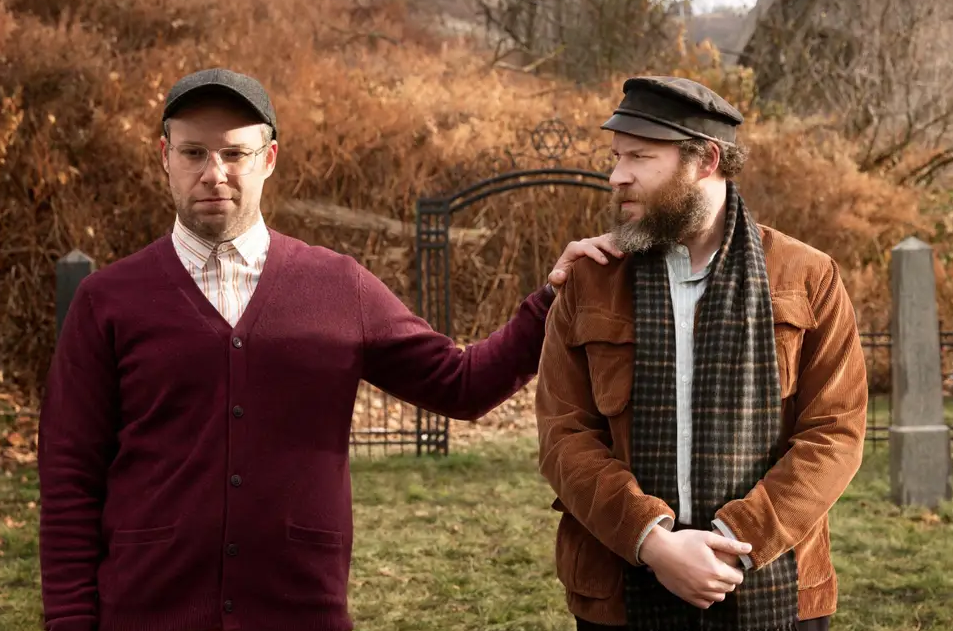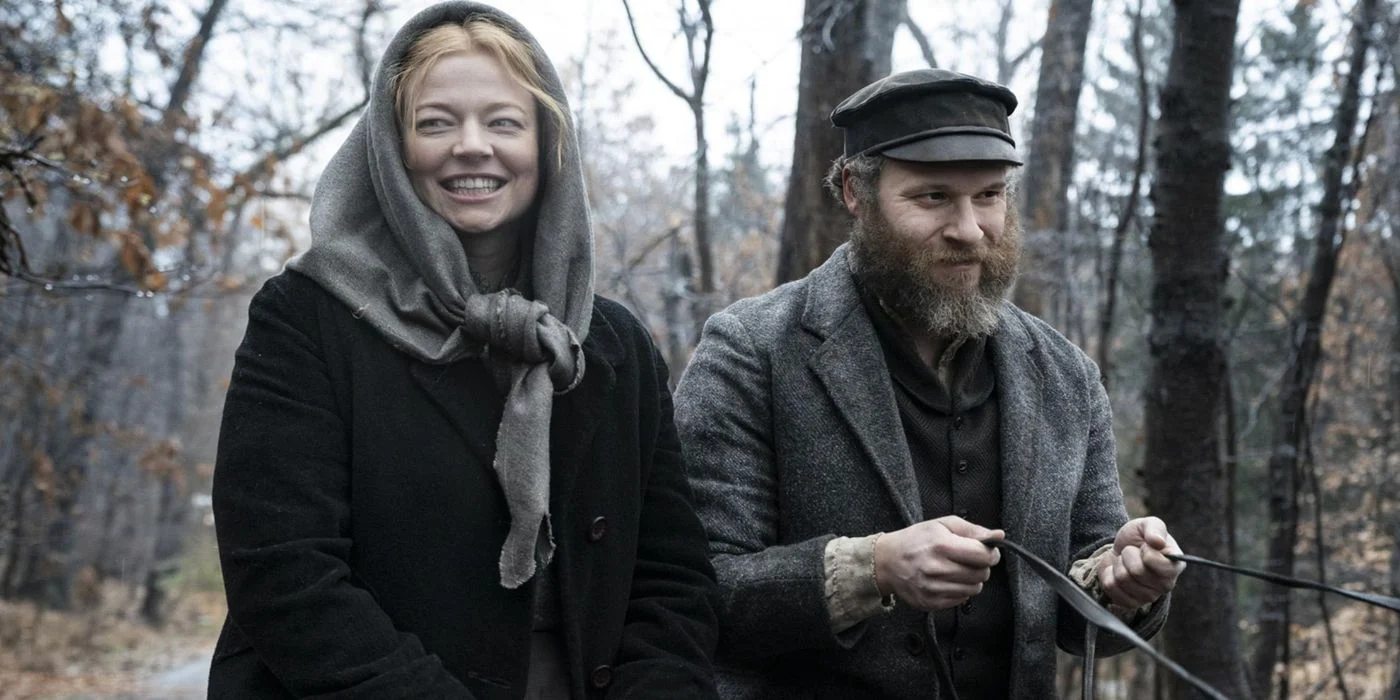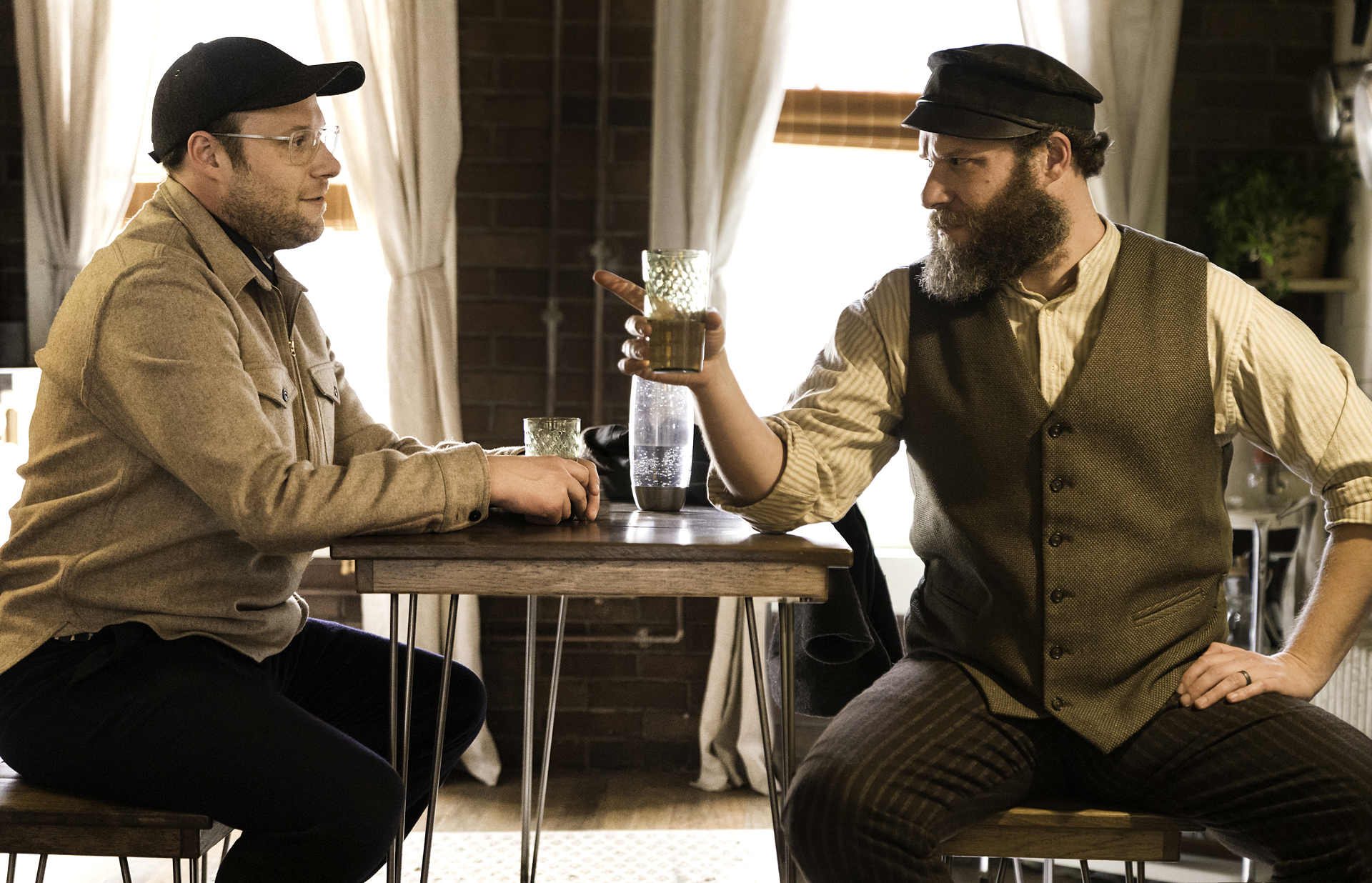
Seth Rogen has built a career mostly composed of comedies of all kinds, from stoner films to dysfunctional family dramedies. In his past decade of work only Take This Waltz and Steve Jobs can be considered dramatic. In An American Pickle, directed by Brandon Trost and written by Simon Rich, Rogen does not leave his comedy roots but instead, digs deeper with the humor and comic storytelling.
An American Pickle is about Herschel Greenbaum (Rogen), a Jewish man from 1919 Russia who moves to New York with his wife Sarah (Succession’s Sarah Snook) in search of a better life after an anti-Semitic attack on their hometown. However, an accident in a pickle factory causes him to be brined for 100 years. After waking up in 2019, he connects with his only living relative Ben (also Rogen)...

A violent altercation in the cemetery where his wife is now buried becomes the start of a rift between the two that goes to extremes.
While having to play two roles is already juicy material, Rogen achieves a surprising amount of maturity in this film. Herschel is a fascinating creation: outside of the film’s fantastical setup, this character harbors insecurity, romantic euphoria, and then disappointment. Seth Rogen gives his best performance to date.
In some ways, this star turn is a transformation; not entirely physical since we can still clearly see the recognizable actor underneath the beard, but speaking a different language with a distinct cadence and a new timidity in his body language. This range of emotions is wonderfully encapsulated in the first eight minutes of the film depicting his life before he gets pickled. There is real character building in these scenes, grounding the film in surprising emotional gravitas.

The eight minute introduction is an inspired collage of warmth and humor despite the film’s heightened version of reality. John Guleserian’s cinematography provides this prologue with a distinctly hyperreal atmosphere. Meanwhile, Nami Melumad’s lush music (with themes by Michael Giacchino) helps bring the film to life with vibrant energy which will be carried throughout the film, seamlessly threading its tones of fantasy, humor, and reflection.
The absurdist idea of a man being pickled serves as a way into its generation gap theme. Upon meeting with his grandson Ben, Herschel realizes that the world around him is vastly different from 100 years ago. This is where the film significantly veers away from its existential exploration of losing track of time and space. While it initially suggests a restrained approach on the topic, it quickly becomes an intentionally puerile battle between Herschel and Ben. The comedy still works mainly because Rogen commits to it, now with the challenge of playing two characters that are vastly different.
Pushing the fish-out-of-water trope even further, the film explores not only his temporal dissociation to his environment, but also his antiquated ideologies and how that turns his character into a social pariah. Highlighted by the corresponding sensationalism of social media, the film deftly critiques society’s penchant for instant information without proper contextualization and understanding.

One remarkable scene depicts Herschel in public spouting rigid and outdated gender norms that eerily echoes Trump’s language on occasion. However, Herschel’s remarks do not necessarily come from ingrained hate but from his detachment to the current discourse.
The last section of the film attempts to unite the haywire tone of the majority of the film with the reflective vibe of the prologue. This ultimately ties the film together in a satisfying, if abrupt, way. However, one is left to wonder if what the film could have been if it stayed on the path it set out earlier in the film. Ultimately, what we have is an entertaining (double) showcase for Seth Rogen embracing his Jewish heritage in his finest hour as an actor. B